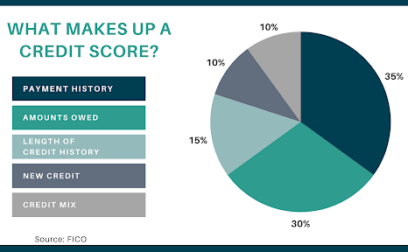TABLE OF CONTENTS
Page written by Chris Godfrey. Last reviewed on October 15, 2024. Next review due October 1, 2025.

Starting a new business can be the beginning of a great new adventure. However, like most journeys, you can’t get there for free. On average, it costs $40,000 to start and run a new business in its first year. However, this figure can vary enormously depending on your type of industry, type of business, and the goods or services that you sell.
Let’s take a closer look at typical business start-up costs and what you can do to keep them to the minimum.
The first thing you’ll need is a budget that covers all the costs you can expect to incur to get to launch and then for the period where you build the business to profitability. Keep in mind that depending on the type of business you start, getting to the point where your profits are higher than your costs could take many months, or even a year or two.
Your budget should list every expected expense – basic items such as rent, wages, fuel, inventory, insurance, furnishings and signage – plus supplementary costs such as advertising, promotions, and social media. As you may expect, these costs can vary significantly depending on your key business factors.
Never launch a business without a plan to control your start-up costs. Basic steps to take include:
Even giant corporations like Apple started in a garage. Keep your goals within the realms of possibility. Starting small gives you the option to learn as you go, finetune what you sell, explore new markets and most importantly, make mistakes that won’t drive you into bankruptcy. If you can launch the business from your home – either by selling online or going out to customers (such as a plumbing or HVAC business) – you’ll save on commercial rent, taxes, build-out costs, insurance and more. If your home isn’t suitable as an operational space, explore low-cost options such as communal workshops/studios, or overflow space in existing businesses (such as garages or unused factory space). Don’t jump into a bigger store or workspace until you have revenues to pay the higher costs.
There are different types of costs involved in launching and running a business. Some are one-off, others are recurring. Some are essential, while others are more of a ‘like to have’ and not necessary to get your business started. Aim to keep your first year costs as low as possible. This may mean spending more on a few one-off costs (such as better technology) that will save you more down the road as you avoid costly maintenance bills and lost productivity due to equipment failures. If you can spare the cash, create a contingency fund that will cover at least three months of your essential overhead costs. This will give you some breathing room should your business encounter unexpected problems.
Cash flow is the lifeblood of any business, and poor cash flow is the most common reason that small businesses fail. Calculating what you will spend compared to what you think your business can earn is crucial and it’s the best way to spot looming financial issues before they become a crisis. The rule of thumb for creating your cash flow plan is to include all expenses, plus 10% for overruns, but be more conservative with income – especially if you’re launching an B2B organization where you get paid on invoice in 30, 60, 90 days or more.
If you don’t have deep pockets, where will you raise the funds to start your business? While 76% of US non-employer small businesses use personal funds to get going, that money may be limited and unable to maintain your enterprise until it is profitable. If that’s the case, you’ll need a business loan or other type of financing:
Obtaining business financing for start-ups can be slow and complicated. The sum you can borrow, the interest rate you’ll pay and other terms and conditions will vary from one lender to another. It therefore makes sense to shop around before settling on a deal. You can do this by approaching banks, credit unions and online lenders one by one, or you can use the services of a loan marketplace that can quickly introduce you to a choice of financing offers from a range of lenders. Some marketplace platforms can also give you advice and help you with the application process. This can be especially useful for borrowers who have never taken out a start-up loan before.
Business costs are classed in different categories:
There are some costs that you cannot avoid in business. These are known as ‘essential costs’ and they include expenses such as rent, wages, energy and so on. Alternatively, ‘optional costs’ are what they sound like – expenses that are not critical to keep the business running. This would include things like luxury furniture and fixings, non-essential equipment, company outings and a corporate jet (just kidding). As a start-up you should focus on essential expenditures only and leave the optional stuff until your business is fully established.
Fixed costs are expenses that remain the same, such as monthly rent. Variable costs are expenses that can fluctuate, such as your energy bill.
Even if you only need to buy a bucket, sponge and a ladder to start a window-cleaning business, you still need a few dollars to get you off the ground. In other words, it’s almost impossible to launch a new venture without spending something. However, you can limit the amount of cash you need by starting a business that requires minimal investment. Apart from window washing, here are a few business ideas that don’t cost much at all:
It’s seldom easy to start a new business, but working with finance experts can make all the difference when you’re seeking funding. Contact Swoop to discuss your borrowing needs, get help with your application and to compare high-quality start-up loans from a choice of lenders. Get your new business up and running now. Register with Swoop today.
Written by
Chris is a freelance copywriter and content creator. He has been active in the marketing, advertising, and publishing industries for more than twenty-five years. Writing for Wells Fargo Bank, Visa, Experian, Ebay, Flywire, insurers and pension funds, his words have appeared online and in print to inform, entertain and explain the complex world of US consumer and business finance.
Swoop promise
At Swoop we want to make it easy for SMEs to understand the sometimes overwhelming world of business finance and insurance. Our goal is simple – to distill complex topics, unravel jargon, offer transparent and impartial information, and empower businesses to make smart financial decisions with confidence.
Find out more about Swoop’s editorial principles by reading our editorial policy.
Related pages
Join the 70,000+ businesses just like yours getting the Swoop newsletter.
Free. No spam. Opt out whenever you like.
Suite 42, 4th Floor, Oriel Chambers, 14 Water Street, Liverpool, L2 8TD
View in Google MapsKingfisher Way, Silverlink Business Park, Newcastle upon Tyne, NE28 9NX, UK
View in Google MapsSuite 105A, Airivo, 18 Bennetts Hill, Birmingham, B2 5QJ
View in Google MapsAberystwyth Innovation and Enterprise Campus
Gogerddan Campus
Aberystwyth University
Ceredigion
SY23 3EE
Dogpatch Labs, The CHQ Building, Custom House Quay, Dublin, Ireland
View in Google MapsSuite 801, Level 8, 84 Pitt Street, Sydney, NSW 2000, Australia
View in Google Maps43 W 23rd St, New York, NY 10010, United States
View in Google Maps21 Dreyer Street, Cape Town, South Africa, 7708
View in Google MapsClever finance tips and the latest news
delivered to your inbox, every week
Join the 70,000+ businesses just like yours getting the Swoop newsletter. Free. No spam. Opt out whenever you like.




